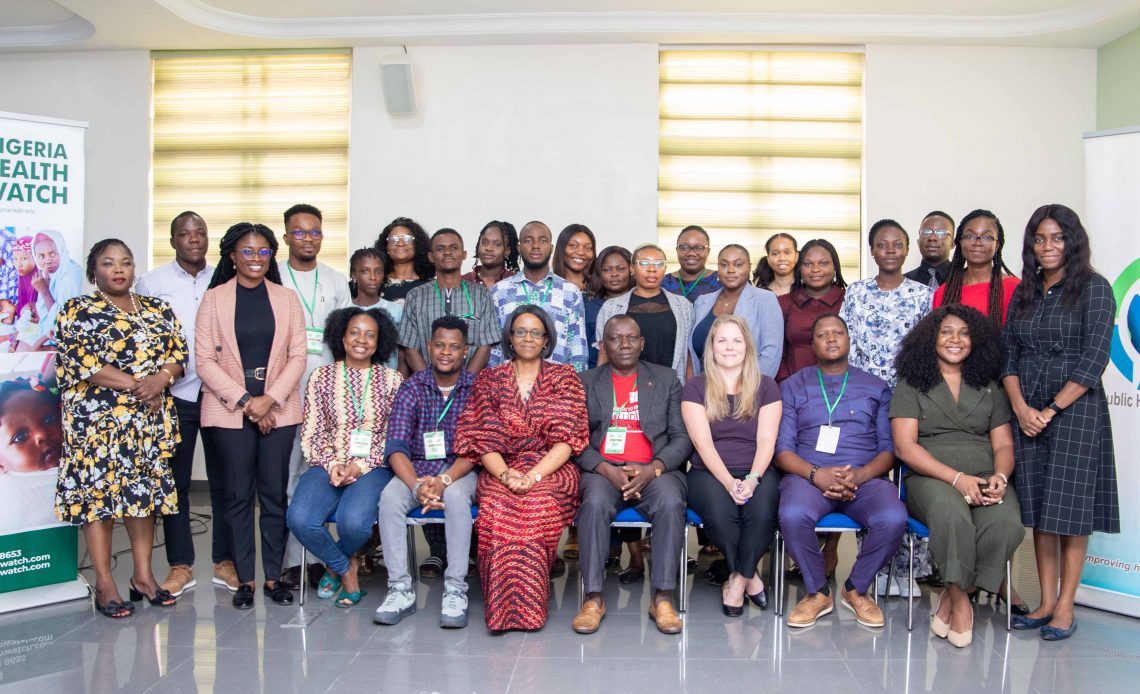Nigeria ranks among the top three countries in the world with the highest burden of Human Immuno-deficiency Virus (HIV), with over two million people living with HIV (PLHIV). To reduce the spread of the disease, significant scientific and clinical advances have been made towards developing effective HIV treatments. Launched by the Prevention Access Campaign, the Undetectable = Untransmittable (U=U) is an advocacy campaign to encourage adherence to HIV treatment, which enables viral load suppression, and is a proven method for preventing HIV transmission.
Undetectable = Untransmittable (U=U) means that people living with HIV (PLHIV) who adhere to their antiretroviral therapy (ART) daily, as prescribed by their doctor, can maintain an undetectable viral load and will not be able to transmit the virus to others through sexual intercourse. Spreading the U=U message is part of the HIV prevention strategy to reduce new HIV infections, provide hope, enhance the lives of persons living with HIV and achieve the 95- 95–95 target for HIV.
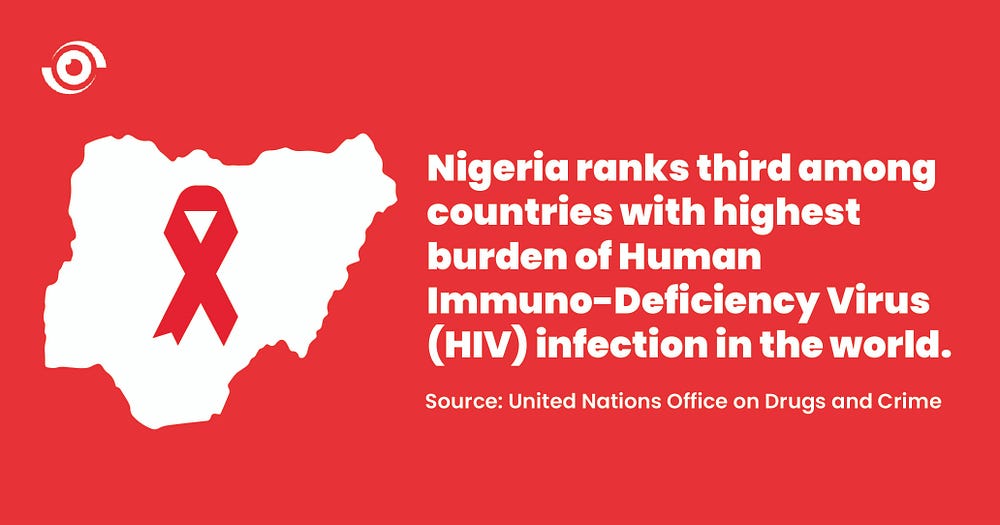
U = U in Nigeria
The National Agency for the Control of AIDS (NACA) in partnership with the United States President’s Emergency Plan for AIDS Relief (PEPFAR), launched the U=U, HIV prevention strategy during the commemoration of the 2019 World AIDS Day. In the midst of the excitement from partners and the government about achieving HIV epidemic control, the coronavirus (COVID-19) outbreak erupted globally in January 2020 .
The COVID-19 pandemic impacted the Nigerian health system, diverting resources (human and financial) from other health service interventions to pandemic response, resulting in a decrease in access to healthcare services. The U=U campaign in Nigeria was put on hold, in response to the pandemic until 2023.
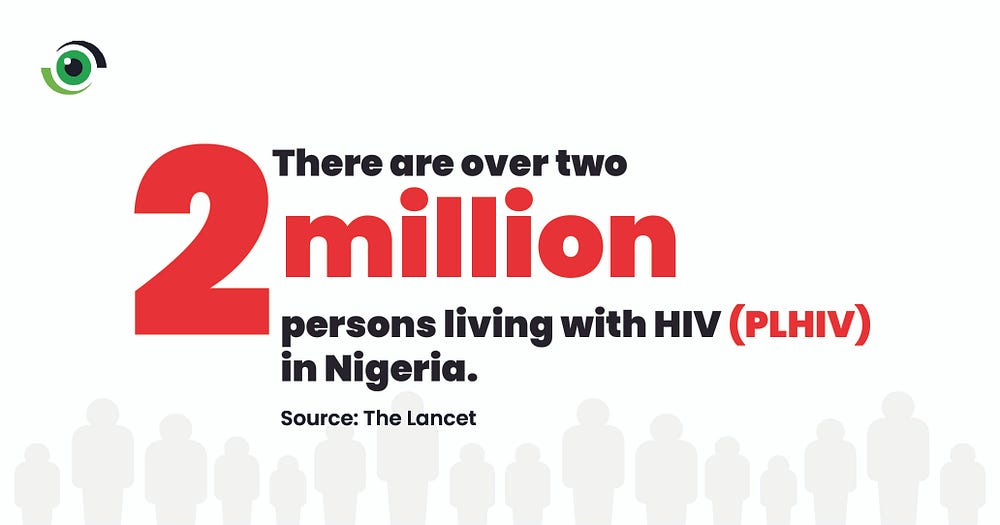
Back in full swing
With support from US Centers for Disease Control and Prevention and AIDS Prevention Initiative in Nigeria (APIN), Nigeria Health Watch launched an enhanced 12-week-long U=U Campaign in July 2023 despite initial delays. The campaign targeted the young population (18–35 years) in Nigeria and aimed to increase the awareness of U=U and its potential to reduce stigma among sexual partners, promote HIV/AIDS testing and increase awareness of and adherence to HIV/AIDS treatment.
Prior to the launch of the enhanced campaign, desk reviews (situation analysis and audience analysis) were conducted and used for the Capability, Opportunity and Motivation for Behavior change (COM-B) analysis and Communication for Behavioral Impact (COMBI) strategy.
Findings showed that:
- Young people (particularly those living in rural areas) lack access to HIV testing and treatment.
- Young people living with HIV/AIDS find it difficult to disclose their HIV status, seek treatment, and access HIV prevention services due to stigma and discrimination
- The level of awareness and understanding of U=U messaging among young people is low
- Strong engagement with healthcare providers and case managers is critical to reinforcing the message of U=U for young people and the community at large
- Use of social media and digital platforms has been proven to have a wider audience reach, particularly among young people
The reviews and analysis informed the development of the U=U message development framework. Therefore, the U=U message development was carried out collaboratively in two stages. Firstly, the draft repository of 33 key U=U messages was co-developed with US-CDC and APIN, using the message development framework and based on findings from the analyses. Following this, a collaborative workshop was convened with all relevant stakeholders (including the Federal Ministry of Health (FMOH) — National AIDS and STI Control Programme (NASCP), National Agency for the Control of AIDS (NACA), PLHIV, young general population and other implementing partners) to review the draft messages. A repository of 35 key U=U messages were validated and finalised as an output of the workshop. The messages were also translated into five major languages spoken in Nigeria — English, Pidgin, Hause, Igbo and Yoruba to further increase access to information.
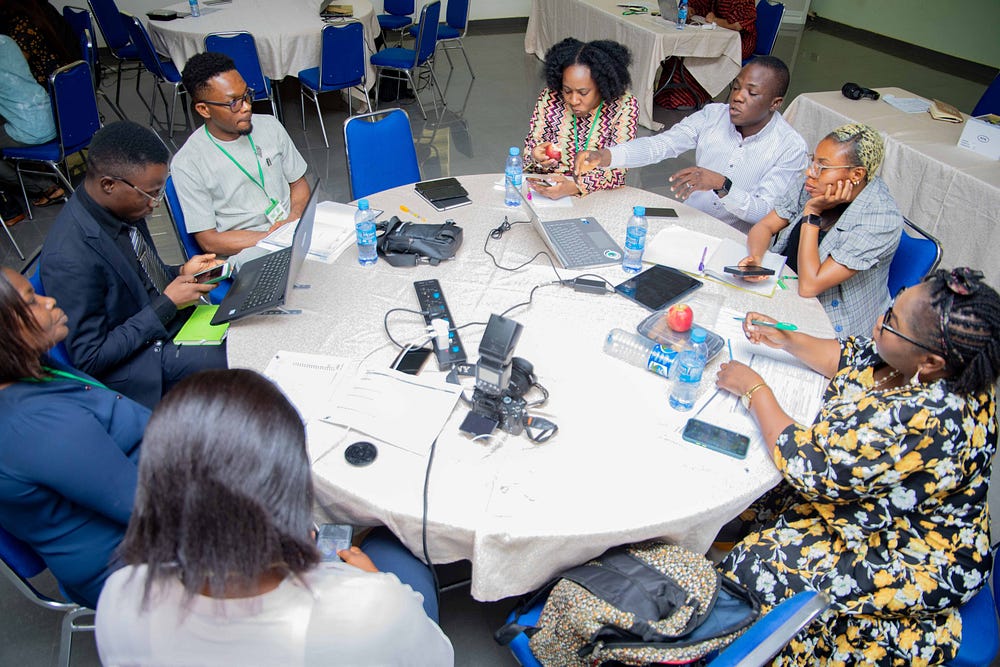
U=U Dissemination
The U=U messages were disseminated through social media and traditional media (radio jingles). The key products include U=U themed infographics, comic strips, radio jingles and videos, disseminated across internal networks and external networks. Internal networks included the U=U and Nigeria Health Watch’s platforms and external networks included implementing partners’ and influencers’ platforms (selected based on the relevance of their focus areas to the campaign and their social media reach in relation to the target group).
What’s Working
-
I-WASH: Improving Access to Water Sanitation and Hygiene Services in Kebbi State
The I-WASH program aims to combat waterborne diseases and address challenges facing communities without access to clean water. The program has built toilets in schools, provided handwashing facilities, as well as a solar-powered borehole and educational services on sanitation practices and how to maintain the water points. Through the help of the I-WASH program, as of May 2022, 300 functional toilets had been built in households across more than 30 communities. Read more
The influencers – Ugochukwu Nnamdi (Ugo_PNnamdi), Dr Munirat Antoinette Lecky (Anto Lecky) , Kanaga Jnr, and Tomiwa Tegbe played a key role in sharing campaign content across their various platforms and engaging with audiences on a personal level. Specific platforms include Twitter, Facebook, YouTube, Nigeria Health Watch Website and Mailshot as well as radio stations (across ten states including Abia, Benue, FCT, Gombe, Kaduna, Lagos, Osun, Oyo, Plateau and Rivers states). These states were prioritised based on four criteria — the size of the young population, viral suppression gap, viral load coverage, and radio listenership among the target audience in the states.

Key achievements from the enhanced u=u campaign
The enhanced U=U campaign recorded a very significant increase in the awareness of U=U among young people (18–35 years) in Nigeria.
At baseline, there were only 102 messages linked to #HIV, #AIDS and #UequalsUNG but at week 10, there were 2,393 messages (2,346.07%) more messages on social media. The baseline data for engagement showed only 1,743 engagements — an average of 17 engagements (including likes, retweets, comments, quotes, and bookmarks) per post/message, but now there are 797,740 engagements — an average of 333 engagements per post/message (over 1,950% more engagements per post/message). More so, the messages had 65% positive sentiments — 15% higher than the baseline of 51%. The messages that trended the most were related to HIV medication closely followed by messages related to adherence to ART and reducing stigma among sexual partners. Other organic contributors (apart from those primarily involved in the campaign) joined the campaign independently and their posts contributed to over 1,174 engagements.
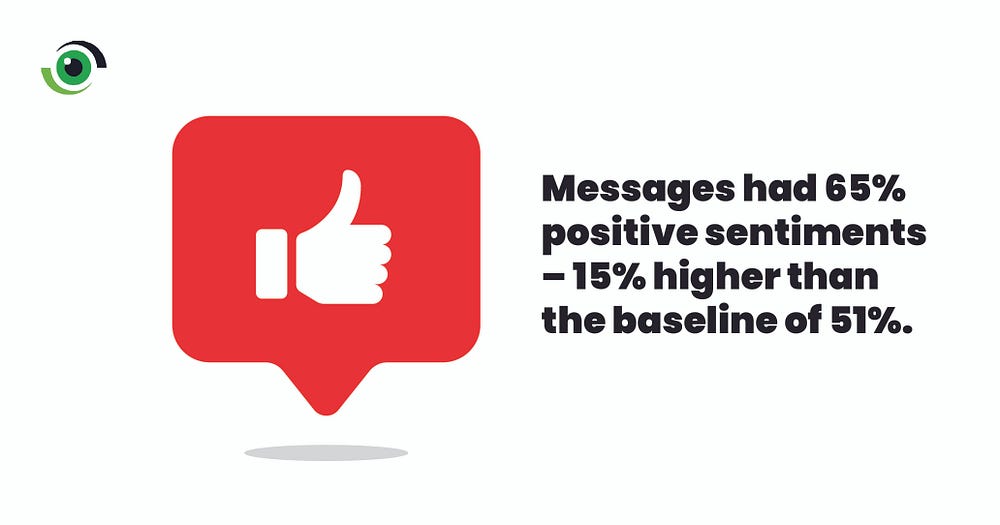
In addition, the campaign audience in their engagements acknowledged that the campaign was helpful in increasing their knowledge about HIV medication adherence and U=U. Some others were encouraged to find out their HIV status.
“I have had to go and test myself also….pretty important to stay aware of our HIV status. Thank you for the outreach”, said a Twitter user and adhere to their medication as prescribed.
“I’m U=U now”- Twitter user.
The campaign further spurred conversations for young people to gain more information, privately and publicly, on U=U, adherence and HIV testing.
An uphill battle
Despite the achievements, the campaign experienced challenges with the duration of implementation. For a campaign such as this, the timeline for implementation was only 10 weeks, limiting the potential reach of this campaign. In addition, less content than planned was posted during the campaign duration period. This potentially limited the conduct of a more extensive U=U message development and validation.
Other challenges experienced, included the limited involvement of government stakeholders. While buy-in was obtained from all relevant government stakeholders, they were not actively involved in the dissemination of these messages, which would have increased the overall reach and visibility.
The way forward
While increased awareness has been created on this groundbreaking HIV prevention strategy, it was short-lived, and it is important to sustain the momentum of the U=U awareness campaign. There is a need to scale up this campaign for a longer duration, given that a yearlong campaign is not sufficient time to move from awareness to behaviour change. It is also important to expand the campaign’s reach beyond the ten states that were prioritised.
The U=U campaign has proven to be effective in reaching a significant number of young people and has the potential to limit the spread of HIV, however, during the scale-up, there is a need to have greater collaboration with government stakeholders to increase the potential reach and visibility of these messages and work towards eliminating the spread of HIV in Nigeria.


